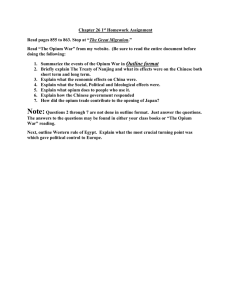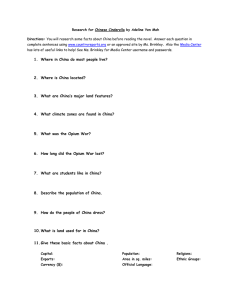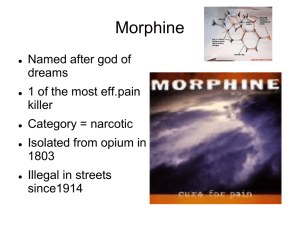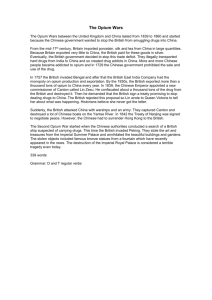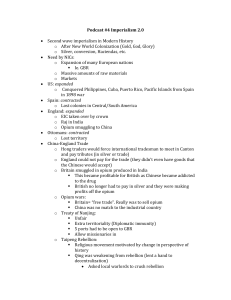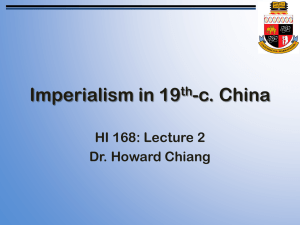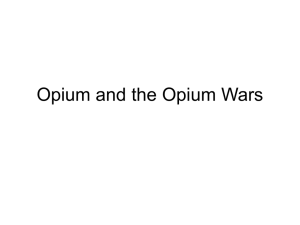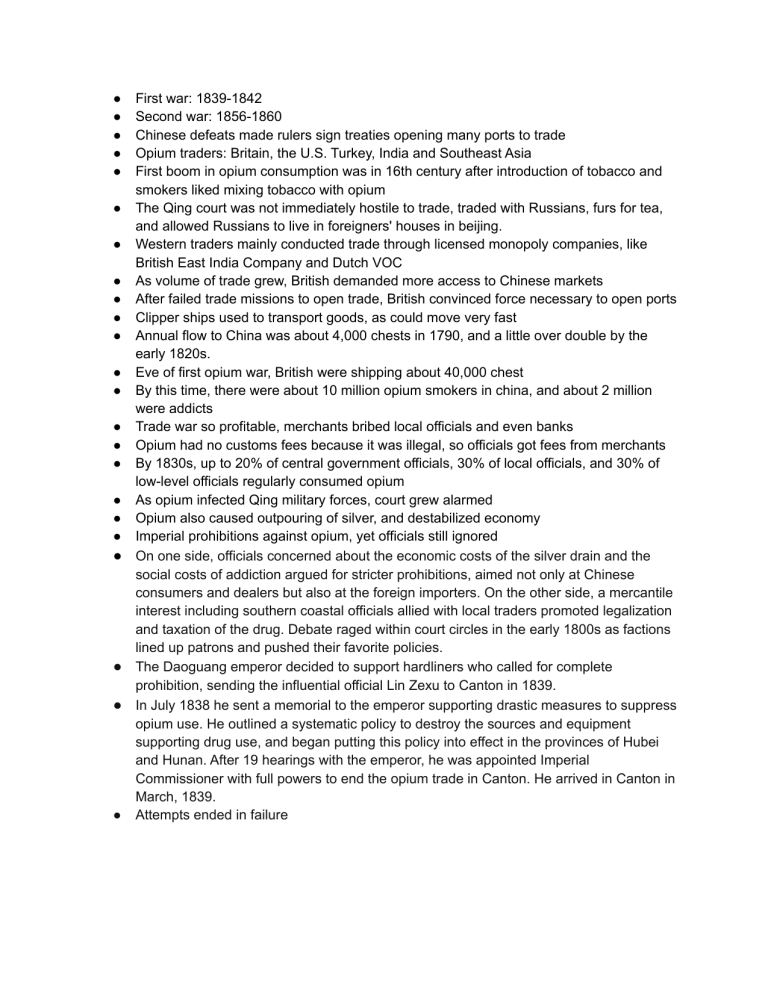
● ● ● ● ● First war: 1839-1842 Second war: 1856-1860 Chinese defeats made rulers sign treaties opening many ports to trade Opium traders: Britain, the U.S. Turkey, India and Southeast Asia First boom in opium consumption was in 16th century after introduction of tobacco and smokers liked mixing tobacco with opium ● The Qing court was not immediately hostile to trade, traded with Russians, furs for tea, and allowed Russians to live in foreigners' houses in beijing. ● Western traders mainly conducted trade through licensed monopoly companies, like British East India Company and Dutch VOC ● As volume of trade grew, British demanded more access to Chinese markets ● After failed trade missions to open trade, British convinced force necessary to open ports ● Clipper ships used to transport goods, as could move very fast ● Annual flow to China was about 4,000 chests in 1790, and a little over double by the early 1820s. ● Eve of first opium war, British were shipping about 40,000 chest ● By this time, there were about 10 million opium smokers in china, and about 2 million were addicts ● Trade war so profitable, merchants bribed local officials and even banks ● Opium had no customs fees because it was illegal, so officials got fees from merchants ● By 1830s, up to 20% of central government officials, 30% of local officials, and 30% of low-level officials regularly consumed opium ● As opium infected Qing military forces, court grew alarmed ● Opium also caused outpouring of silver, and destabilized economy ● Imperial prohibitions against opium, yet officials still ignored ● On one side, officials concerned about the economic costs of the silver drain and the social costs of addiction argued for stricter prohibitions, aimed not only at Chinese consumers and dealers but also at the foreign importers. On the other side, a mercantile interest including southern coastal officials allied with local traders promoted legalization and taxation of the drug. Debate raged within court circles in the early 1800s as factions lined up patrons and pushed their favorite policies. ● The Daoguang emperor decided to support hardliners who called for complete prohibition, sending the influential official Lin Zexu to Canton in 1839. ● In July 1838 he sent a memorial to the emperor supporting drastic measures to suppress opium use. He outlined a systematic policy to destroy the sources and equipment supporting drug use, and began putting this policy into effect in the provinces of Hubei and Hunan. After 19 hearings with the emperor, he was appointed Imperial Commissioner with full powers to end the opium trade in Canton. He arrived in Canton in March, 1839. ● Attempts ended in failure
